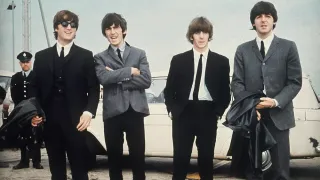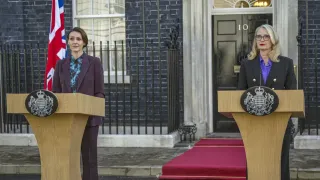
4 hours ago
Millie Bobby Brown and Jake Bongiovi Welcome First Child Via Adoption
Itzel Luna READ TIME: 2 MIN.
LOS ANGELES (AP) — Millie Bobby Brown and Jake Bongiovi adopted a daughter, the first child for the married couple, this summer, they announced Thursday.
“We are beyond excited to embark on this beautiful next chapter of parenthood in both peace and privacy,” the couple wrote in a social media statement. No further details were released.
Brown, 21, and Bongiovi, 23, were married in a private ceremony in May 2024. Representatives for Brown and Bongiovi did not immediately respond to The Associated Press’ request for comment.
Brown gained recognition for her starring role as Eleven in the Duffer brothers' sci-fi series “Stranger Things.” The fifth and final season will air this November and December, a culmination of nine years of the show's production. The British actor has pursued other acting and business ventures in that time, including the Netflix original “Enola Holmes” films and a “Godzilla” film. She even released a romance book in 2023.
Bongiovi is the son of Jon Bon Jovi, founder and frontman of the rock band Bon Jovi. Bongiovi debuted his own acting career as the star in “Rockbottom,” which released last year.
Brown stressed the importance of family during the 2024 premiere of her Netflix film “Damsel,” where Bongiovi and his parents were in attendance.
“I'm just so lucky that they're here tonight and it just means so much to me,” Brown told The Associated Press then. “Family is everything and just to have my second family here means everything.”
The couple lives in Georgia. She recently told the AP she enjoys living on a farm, largely disconnected from social media, while promoting her 2025 Netflix film “The Electric State.”






